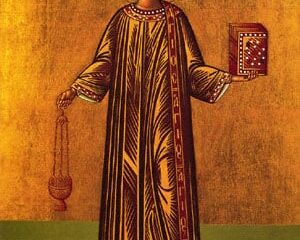I AM the good shepherd. The good shepherd lays down His life for the sheep.
John 10:11
I am the good shepherd; I know My own and My own know me.
John 10:14
Jesus uses the phrase “I AM” three times in the first 16 verses of John 10. The first time He says “I am the door” and the next two, “I Am the good shepherd.” Being the consummate teacher, Jesus knew how to speak to people on their level, and because shepherds and sheep were a large part of the society two thousand years ago, these images and analogies were things that people could understand.
Sheep are not the smartest of animals, in fact, far from it. They needed to be guided, cajoled, and prodded by the shepherd to go in the proper way. They were easy prey for wolves and other predators. The shepherd had the difficult job of keeping the sheep safe while also guiding them from place to place, or even from pasture to pasture in order to eat.
The ratio of sheep to shepherd was 100 to 1, one hundred sheep for every one shepherd. This is confirmed in Luke 15:4-7, when Jesus tells the Parable of the lost sheep. He says “Which man of you, having a hundred sheep, if he has lost one of them, does not leave the ninety-nine in the wilderness, and go after the one which is lost, until he finds it? And when he has found it, he lays it on his shoulders, rejoicing. And when he comes homes, he calls together his friends and his neighbors, saying to them, ‘Rejoice with me, for I have my sheep which was lost.’ Just so, I tell you, there will be more joy in heaven over one sinner who repents than over ninety-nine persons who need no repentance.”
No shepherd would leave his flock for one sheep that went astray, that would mean risking losing the other ninety-nine. And if the shepherd did leave the flock to search for the one, his rejoicing would most certainly be for the ninety-nine that weren’t attacked while he was away.
At night, the shepherd would lead the sheep to the pen, and they would enter by a narrow gate, as we have already discussed. How narrow would the gate have been? The answer, enough for the shepherd to stand in, in order to protect the flock from wolves and other predators. Most likely the gate would have been about six feet wide, so that the shepherd could sit or lay in the gate.
What is the thing we prize the most? Our life and our health. If we were working a job that threatened our health and our very life, who is going to stick with that job? Jesus is saying that He is willing to lay down His life for the sheep. He is willing to lay in the gate and be killed by the wolves if necessary in order to protect the flock.
Many of the people entrusted with caring for sheep were hirelings, as Jesus puts it. A family had a flock of sheep and they hired someone to watch over them. This person had not raised them, had no loyalty to the sheep or to the family, but was just in it for the paycheck. At the first sign of trouble, the hireling would flee and move on to a safer flock to take care of. Jesus is saying that He has a personal relationship with the sheep (meaning us) and will stick by us, even dying for us.
Not only does the good shepherd know the sheep, the sheep know their shepherd. They trust Him, They know His voice. In Psalm 23, which begins with the words The Lord is my Shepherd, this places us in the position of the sheep. When we read Even though I walk through the valley of the shadow of death, I fear no evil; for Thou art with me; Thy rod and Thy staff they comfort me, we are reading this from the perspective of us being the sheep. Even if we are in the worst situation, we still trust our Shepherd, Jesus Christ, to guide us through. We take comfort in Him.
In John 10:16, we read “And I have other sheep that are not of this fold; I must bring them also, and they will heed My voice. So there shall be one flock, one shepherd.” Jesus is referring to the Gentiles and bringing them into the fold. His message is a universal one, one flock of all nations, under one shepherd, Jesus Christ.
The Lord is my shepherd, I shall not want; He makes me lie down in green pastures. He leads me beside still water; He restores my soul. He leads me in the paths of righteousness for His name’s sake. Even though I walk through the valley of the shadow of death, I fear no evil; for Thou art with me; Thy rod and Thy staff, they comfort me. Thou prepares a table before me in the presence of my enemies; Thou anointest my head with oil, my cup overflows. Surely goodness and mercy shall follow me all the days of my life; and I shall dwell in the house of the Lord forever. Psalm 23
In revealing Himself as the Good Shepherd, Jesus is saying that He would die for the sheep, which He did. He is also calling us to His flock, to place ourselves in the position of sheep, with Him as the Shepherd, and asking us to trust in Him and follow Him, because unlike hirelings who care nothing for their sheep, He is the Good Shepherd who laid down His life for us!

0 Comments